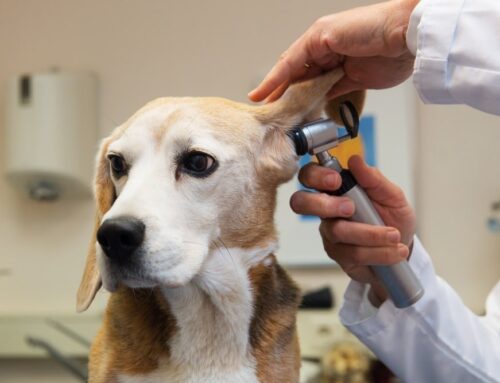Your pet is a family member, and when they are sick, you want to ensure they receive the best care, but veterinary care can be costly. Because of their financial situation, pet owners must often make heart-wrenching treatment decisions that are distressing for everyone, including our Emerald Animal Hospital care team. Fortunately, pet health insurance has become increasingly available, helping pet owners prepare for unexpected expenses, and enabling them to choose their pets’ best treatment options. To find the right pet health insurance policy for you and your pet, you need to research and understand the insurance company’s coverage by learning the answers to some important questions.
#1: What do you expect from pet insurance?
Pet insurance is best for unexpected expenses (e.g., emergencies, illnesses, injuries) and chronic conditions. Pet insurance does not typically cover routine or wellness care (e.g., vaccines, spay and neuter procedures, dental work) unless you pay extra. Only a handful of providers offer wellness coverage, so research carefully, and compare these services’ higher premium cost with your annual out-of-pocket expenses. Is the additional wellness coverage cost worth it?
#2: How much can you afford for your pet out-of-pocket?
Most pet insurance is based on reimbursement, so you must be able to pay your pet’s veterinary bills upfront, and after you file a claim, your insurance company reimburses you. You typically can choose your reimbursement level (e.g., 70%, 80%, 90%), with a higher reimbursement rate linked to a higher monthly premium. Some pet owners choose to cover their veterinary costs by paying with a credit card, and paying the credit card company after their insurance company reimburses them. A few insurance companies will pay the veterinarian directly.
You will also have to pay an out-of-pocket deductible. Most pet owners find that the best pet health insurance policies accept an annual deductible rather than a per-incident deductible. You can usually choose your deductible amount, which raises or lowers your premium payment accordingly. Remember, if you can afford a higher deductible amount, your monthly premiums may be lower.
#3: Do you need coverage for your pet’s hereditary or congenital conditions?
The answer to this trick question is “Yes” for all pets. If you are considering an insurance policy that excludes hereditary or congenital condition coverage, run! Hereditary and congenital conditions are breed-related problems that can occur at any age, and without this coverage, your insurance company can deny reimbursement for any pet illness because their breed is “prone” to the condition.
#4: Does your pet have pre-existing conditions?
Because of the current underwriting laws, insurance policies are not allowed to cover pets’ pre-existing conditions. When an insurance company decides to cover your pet, they will review your pet’s medical records, and will exclude coverage for any adverse condition your pet has experienced in a certain time frame. Therefore, the younger the age at which you insure your pet, the better. But, insuring an older pet with pre-existing conditions can also be worthwhile when you choose a lower coverage level, or choose to use the insurance coverage only for emergencies or new conditions.
#5: Have you looked at the fine print of your pet’s policy?
Similar to human health insurance, pet policies include a lot of confusing components that include:
- Limits — Does the policy have a lifetime, annual, or per-condition dollar limit? Is your pet likely to reach those dollar amounts?
- Waiting periods — Most policies have a waiting period for common injuries such as anterior cruciate ligament (ACL) tears. Is your pet’s breed prone to ACL tears? Does your policy waive the waiting period if your pet’s veterinarian certifies their knee or hip health with a special exam?
- Special coverages — Do you want coverage for your pet’s rehabilitation or for complementary therapies such as chiropractic or acupuncture? Your insurance company may require a special rider for these treatments, but some policies may include their coverage. Remember, read the fine print.
#6: Is the pet insurance company reputable?

Read multiple online reviews to get a feel for a pet health insurance company’s business practices. Do they have quick claim resolution, or will reimbursement take weeks? How responsive is customer service, and how difficult is claim filing? Is there a phone app to upload records and quickly access information? These options can strongly affect your overall experience with the company, influencing how well they support you as a pet owner.
Health insurance can be a lifesaver when your pet needs medical care, but before you commit to a policy, carefully review the insurance company’s options, especially the small print. Call your Emerald Animal Hospital team to discuss your pet’s insurance needs, or to schedule their insurance certification exam.









Leave A Comment